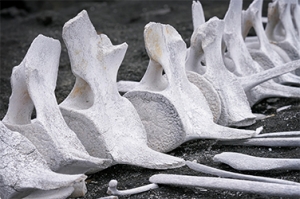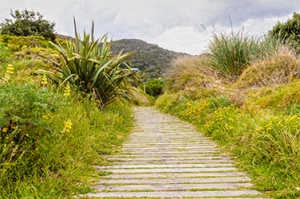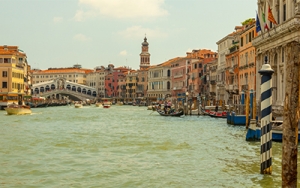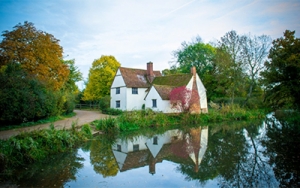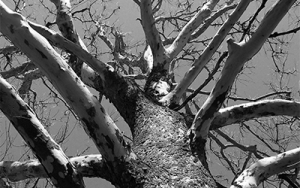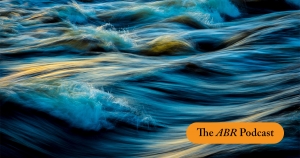Jolley Prize Story
This week on the ABR Podcast we revisit a shortlisted story from the 2016 ABR Elizabeth Jolley Short Story Prize: ‘Slut Trouble’ by Beejay Silcox. The provocatively titled story was republished in The Best Australian Stories 2017. Beejay is an ABR critic and the newly minted director of the Canberra Writers Festival. Listen to her read ‘Slut Trouble’, commended in the 2016 Jolley Prize.
... (read more)The ABR Elizabeth Jolley Short Story Prize, one of the world’s leading prizes for short fiction, is now open and closes on April 24, with total prize money of $12,500. In this week’s ABR Podcast, we feature Maria Takolander’s story ‘A Roānkin Philosophy of Poetry’, which won ABR’s short story competition in 2010, the year before it was renamed the Jolley Prize. It is one of the best-read features on ABR’s website, which hosts content going back to 1978. ‘A Roānkin Philosophy of Poetry’ is an artful take on academic intrigue and absurdism. Maria Takolander’s story appeared in the December 2010–January 2011 issue of ABR. Listen to Maria Takolander reading her story thirteen years later.
... (read more)This week we feature the 2013 winner of the ABR Elizabeth Jolley Short Story Prize, one of the world's leading prizes for a short story written in English. Michelle Michau-Crawford’s ‘Leaving Elvis’ is a story about regret and unlikely heroes, which has ‘echoes of the distinctive elements of Elizabeth Jolley’s own fiction’, according to the 2013 Jolley Prize judges. The 2023 Jolley Prize is currently open for entries. Listen to Michelle Michau-Crawford, a Western Australian writer of fiction, non-fiction, and poetry, read 'Leaving Elvis'.
... (read more)A video in the museum foyer chronicles the dismantling of a rotting whale that had beached itself on a nearby coast. The machinery hauling away its distended remains and the workers standing knee-deep in the guts of the creature arrest my attention; for the longest time I thought the death of a whale one of the saddest things imaginable. My teacher, Mr Maurice, schooled me otherwise. What’s worse than death is death without purpose.
... (read more)In the stillness, after the fireworks, I stood for a while at the window. The bay below was crammed with the pretty lights of marine craft and it looked as though you could step from one boat to another, all the way across the harbour.
‘Why don’t I do that?’ I thought, and stayed there for some time, plotting my passage across the decks and bows.
... (read more)Georgie heads towards a bench in the shade. No prams or bags or snack boxes on it. No other parents looking for playground chitchat. Max scuffs along a few metres behind her. He’s waving a stick like a metal detector and mumbles to himself. Georgie sits down and waves for him to hurry up. She should’ve shelved it by now. You can’t hurry Max. He’s always walked to the beat of his own drum. At his own pace. He stops for a moment to look at the sky and holds two hands up around his eyes like binoculars. He’s looking, maybe at something, maybe at nothing.
... (read more)D likes my photograph, the one of me in the 1940s shorts and tight T-shirt, the one I posted to the internet just so that he would see. He watches my story – watches as I make my way through Italian museums, drink Campari, buy a straw hat with a grosgrain band. It is peak summer. It is Italy. It is forty degrees. I have to tell you: I hold four tenets to be true. I still believe in trains that run on time, in the solemn power of dandelion wishes, that ripe heirloom tomatoes are the embodiment of the sensual life, and that you shouldn’t use people. Hold fast, and the compass will point true north.
... (read more)One interpretation of the facts is that Jean-Michel Houvrée produced his most arresting art only after he had died. Born in 1694 in Ariège-sur-Mentouin, a village a few kilometres north of Carcassone, to a moderately prosperous inn-owner and his wife, he was brought up a Catholic but embraced Jansenism in his early twenties. He was educated at the local village school until the age of fourteen: an indifferent scholar in the classroom, he was an avid student of the natural world. He was a good boy, obedient to his parents, kind to his friends, open to the loving grace of God. He had big feet, thick black hair, dark brown eyes, a shy smile. Any free time he had after assisting his father in the inn, he would wander the sun-baked lanes and fields carrying cheese and home-baked bread in his bag, beneath a sky colour-washed fresh each day by his Creator.
... (read more)She’d offered to lay the table (‘Oh no’) or make a salad (‘It’s basically out of a bag’). What she could do, said Amy, was track down That Child, ‘somewhere down the garden. It’s terribly overgrown.’ Borrow my boots if you like, she called at Elizabeth’s departing back. The child, when found, was in a dead apple tree, not dangerously high, but in a controlled dangling.
... (read more)Mykaela Saunders reads 'River Story', winner of the 2020 Jolley Prize
In today's episode, listen to Mykaela Saunders read the entirety of her remarkable 'River Story', which won this year's ABR Elizabeth Jolley Short Story Prize. Mykaela is a Koori writer, teacher, and community researcher. Of Dharug and Lebanese ancestry, she’s working-class and queer, and belongs to the Tweed Aboriginal community. Mykaela has worked in Aboriginal education since 2003, and her research explores trans-generational trauma and healing in her community.
... (read more)



